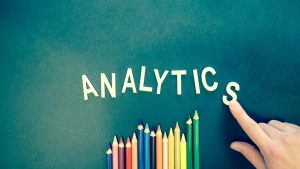
In an age where data is being generated at an unprecedented pace, understanding how to harness this information has become crucial. Data Analytics is the process of examining data sets to draw conclusions about the information they contain, increasingly with the aid of specialized systems and software. As organizations seek to make more informed decisions, business intelligence and data science are becoming foundational pillars of success.
From improving customer experiences to optimizing operations, Data Analytics is driving innovation across industries. Its importance extends beyond just technical functions—it’s a key player in shaping strategic direction. Moreover, with the rising demand for skilled professionals, pursuing a career in Data Analytics offers numerous growth opportunities in today’s digital economy.
What is Data Analytics?
Data Analytics refers to the science of analyzing raw data to draw actionable insights. It involves various techniques and processes to discover patterns, trends, and relationships in data. Whether through simple statistical tools or advanced machine learning algorithms, Data Analytics turns information into intelligence.
There are four main types of Data Analytics:
- Descriptive Analytics – Summarizes historical data to identify patterns and trends.
- Diagnostic Analytics – Explores why something happened.
- Predictive Analytics – Uses models to forecast future outcomes.
- Prescriptive Analytics – Suggests actions to affect desired outcomes.
Key tools and techniques in this field include statistical analysis, machine learning, and data mining. Software such as Excel, Python, R, and SQL serve as the backbone for data processing, while platforms like Tableau and Power BI facilitate powerful visualizations.
Applications of Data Analytics
The real power of Data Analytics lies in its versatility. Nearly every industry now leverages analytics to improve performance, reduce costs, and enhance customer satisfaction.
Business Intelligence and Decision-Making
Data Analytics transforms raw data into business intelligence that guides decision-makers. Companies like Amazon and Google use analytics to streamline operations, predict demand, and personalize user experiences. Real-time dashboards and KPI tracking enable businesses to make agile, informed decisions.
Marketing and Customer Segmentation
Marketers use Data Analytics to understand consumer behavior and optimize campaign strategies. By segmenting customers based on preferences, demographics, and online activity, companies can deliver personalized marketing messages that increase engagement and conversions.
Healthcare and Medical Research
In healthcare, analytics helps improve patient outcomes, optimize resource use, and advance research. Hospitals use predictive models to anticipate patient readmissions, while researchers rely on data-driven methods for drug discovery and epidemiological studies.
Finance and Risk Management
Financial institutions use analytics for fraud detection, credit scoring, and investment analysis. Real-time data processing helps identify suspicious transactions and market anomalies. Furthermore, risk managers leverage statistical models to assess and mitigate financial risk.
Studying Data Analytics
If you’re interested in a career in Data Analytics, there are numerous academic paths to consider. Universities and online platforms offer programs ranging from certificates to advanced degrees in data science, analytics, and business intelligence.
Typical courses cover:
- Statistics and Probability
- Machine Learning and AI
- Database Management
- Data Visualization
- Programming in Python or R
In addition to technical knowledge, analytical thinking, communication skills, and problem-solving abilities are essential for success in this field. Internships, bootcamps, and real-world projects provide valuable hands-on experience and portfolio development.
Career Opportunities in Data Analytics
The demand for Data Analytics professionals continues to grow as organizations increasingly rely on data-driven strategies. Some popular roles include:
- Data Analyst – Interprets complex data sets to identify trends.
- Data Scientist – Develops models and algorithms to predict future outcomes.
- Business Analyst – Bridges the gap between IT and business by providing actionable insights.
- Data Engineer – Designs and maintains data infrastructure.
Industries such as tech, healthcare, finance, and retail are actively hiring, and job postings often list strong salaries and flexible work arrangements. According to Glassdoor and the U.S. Bureau of Labor Statistics, median salaries for data-related roles range from $70,000 to over $120,000, depending on experience and location.
Tools and Technologies Used in Data Analytics
Modern Data Analytics relies on a wide range of tools and platforms:
Programming Languages
- Python and R – Widely used for statistical analysis and machine learning.
- SQL – Essential for querying databases and managing data.
Visualization Tools
Tableau, Power BI, and Looker – Help turn data into easily understandable visuals for stakeholders.
Big Data and Cloud Platforms
- Apache Hadoop and Spark – Handle large-scale data processing.
- AWS, Google Cloud, and Azure – Offer scalable infrastructure and services tailored for data analytics and machine learning.
These tools help analysts clean, transform, model, and visualize data efficiently, making them indispensable in the modern data workflow.
Future of Data Analytics
As technology evolves, the future of Data Analytics looks both exciting and complex.
Emerging Trends
- Artificial Intelligence (AI) and Machine Learning (ML) are making analytics more predictive and autonomous.
- The Internet of Things (IoT) is creating new data sources from connected devices.
- Augmented Analytics will further automate insights using natural language processing.
Societal and Business Impact
Analytics will continue to shape sectors such as healthcare, education, and environmental sustainability. However, data privacy, bias in algorithms, and ethical concerns must be addressed to build trust and transparency.
Opportunities and Challenges
While new tools and frameworks make analytics more accessible, the need for continuous learning remains. Professionals must stay updated on best practices and emerging technologies to remain competitive in this fast-changing field.
Conclusion
Data Analytics is no longer a niche skill—it’s a core competency for businesses and individuals alike. By transforming raw data into actionable insights, it enables smarter decisions, drives innovation, and creates competitive advantages.
As industries continue to embrace data science and business intelligence, the need for skilled analysts will only grow. If you’re analytical, curious, and ready to solve real-world problems, a career in Data Analytics could be your perfect path.
Click here to Start your Data Analytics journey today —your future in data begins now.




